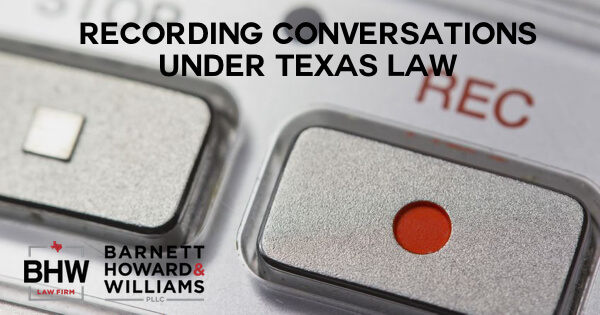 Criminal law disfavors the testimony of an accomplice, for good reason. The policy behind this is clear – factfinders should be leary of trusting those who have a substantial stake in the litigation, especially those with a direct liberty interest. A few years back, the 2nd District Court of Appeals (Fort Worth) provided a good synopsis of the Accomplice Witness Rule, which I felt was worth sharing. The following excerpt is taken from Clark v. State (June 17, 2010).
Criminal law disfavors the testimony of an accomplice, for good reason. The policy behind this is clear – factfinders should be leary of trusting those who have a substantial stake in the litigation, especially those with a direct liberty interest. A few years back, the 2nd District Court of Appeals (Fort Worth) provided a good synopsis of the Accomplice Witness Rule, which I felt was worth sharing. The following excerpt is taken from Clark v. State (June 17, 2010).
What is the Accomplice Witness Rule in Texas criminal law?
The accomplice-witness rule is a statutorily imposed sufficiency review andis not derived from federal or state constitutional principles that define the legal andfactual sufficiency standards. An accomplice is a person who participates before, during, or after the commission of the crime and can be prosecuted for the same offense as the defendant or for a lesser-included offense. Article 38.14 of the code of criminal procedure provides that “[a] conviction cannot be had upon the testimony of anaccomplice unless corroborated by other evidence tending to connect the defendant with the offense committed; and the corroboration is not sufficient if it merely shows the commission of the offense.”
When evaluating the sufficiency of corroboration evidence under the accomplice-witness rule, we “eliminate the accomplice testimony from consideration and then examine the remaining portions of the record to see if there is any evidencethat tends to connect the accused with the commission of the crime.” The corroborating evidence need not prove the defendant’s guilt beyond a reasonable doubt by itself. Nor is it necessary for the corroborating evidence to directly link the accused to the commission of the offense. Rather, the evidence must simply link the accused insome way to the commission of the crime and show that “rational jurors could conclude that this evidence sufficiently tended to connect [the accused] to theoffense.” Additionally, “[p]roof that the accused was at or near the scene of the crime at orabout the time of its commission, when coupled with other suspicious circumstances, may tend to connect the accused to the crime so as to furnish sufficient corroboration to support a conviction.” But “mere presence alone of a defendant at the scene of a crime is insufficient to corroborate accomplice testimony.”
I omitted the citations, so you should click on the link above and go to page 15 of the opinion if you wants the various cites for the law above.










